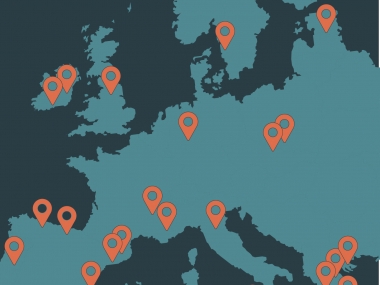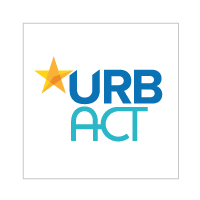Where does cooperation stand when cities cannot meet?
Edited on
06 August 2020An editorial from the URBACT Secretariat on the short and long-term impacts of the Covid-19 crisis on city cooperation.

To our dear European community,
We have been facing the most exceptional crisis to hit Europe, and the world, over the past few months. Dealing with a public health emergency has forced us all to stop and think about our actions, the consequences and our role in this world. For the URBACT Community, which is rooted so much in peer-learning, exchanges and participation, this crisis is having a profound impact on us.
For the cities involved in our European exchange networks, it is totally understandable that for some of them, staff have been diverted to deal with frontline emergencies. For others, it might even put their participation in jeopardy, as budgets and resources are channeled elsewhere.
It raises a fundamental question for the programme: when the basis of URBACT is so firmly built on bringing people together, within cities, across countries, to create a trusting environment where challenges and weakness can be shared in a safe and nurturing space... what happens when that essential need to meet is suddenly taken away?
The responses and reactions we have seen from colleagues in the URBACT Secretariat, from our National URBACT Points and from cities themselves have been so overwhelmingly positive. European solidarity is needed now, more than ever. Sharing knowledge and experience is needed now, more than ever. Even if we cannot continue on as before, guarding that safe space for learning is needed now, more than ever.
And so we have seen the cities take the digital leap - digital transition now belonging to that time of 'before' - holding transnational meetings on the myriad of online tools they are rapidly getting acquainted with, using their URBACT experience to tackle these new challenges in their city. It is an honour to try and highlight some of these actions on our interactive map.
The URBACT Secretariat has also been uprooted from our common and joint place of work. Whether facing the difficulties of solitude or the challenges of living, working and schooling in a confined space, and everything in between. We have been reacting, adapting, but also proposing new activities to accompany cities. True to our values of listening to city needs and developing tailored responses.
We have revised the the project's timeline to allow extra time to conclude exchange and learning activities. We are testing new tools and repurposing existing ones for online collaboration, meeting and discussion. URBACT's approach has always been to set the good example towards the changes we would like to see, and now is no different. Although we are on the same steep learning curve, we are confident that together with cities, we will find new and innovative ways of working.
As the adrenaline of reacting and reorganising starts to fade, we are conscious that things will not be returning to 'normal' any time soon. As a programme dedicated to better policy-making and practice in cities for sustainable urban development, we should take this opportunity to help the rebuilding process ahead in another direction - one of more integrated policy-making, where citizens are involved in the planning and delivery, that takes the climate emergency as seriously as this health emergency.
Over the coming weeks, we will produce a series of more reflective pieces by our Programme Experts, looking at the longer-term implications on policy-making and how the health crisis impacts on environmental challenges, food, urban poverty and the economic recovery.
And naturaly, this reflection is feeding the preparations for the URBACT IV Programme (2021 - 2027). What forms of cooperation will cities need going forward? How can URBACT and the other urban initiatives from the European level can be more coherent for cities to help them tackle the challenges we are all facing?
The road ahead may not yet be clear, but what is clear is that cities still have an appetite for cooperation and URBACT will be by their sides, driving change.
 Submitted by URBACT on
Submitted by URBACT on




